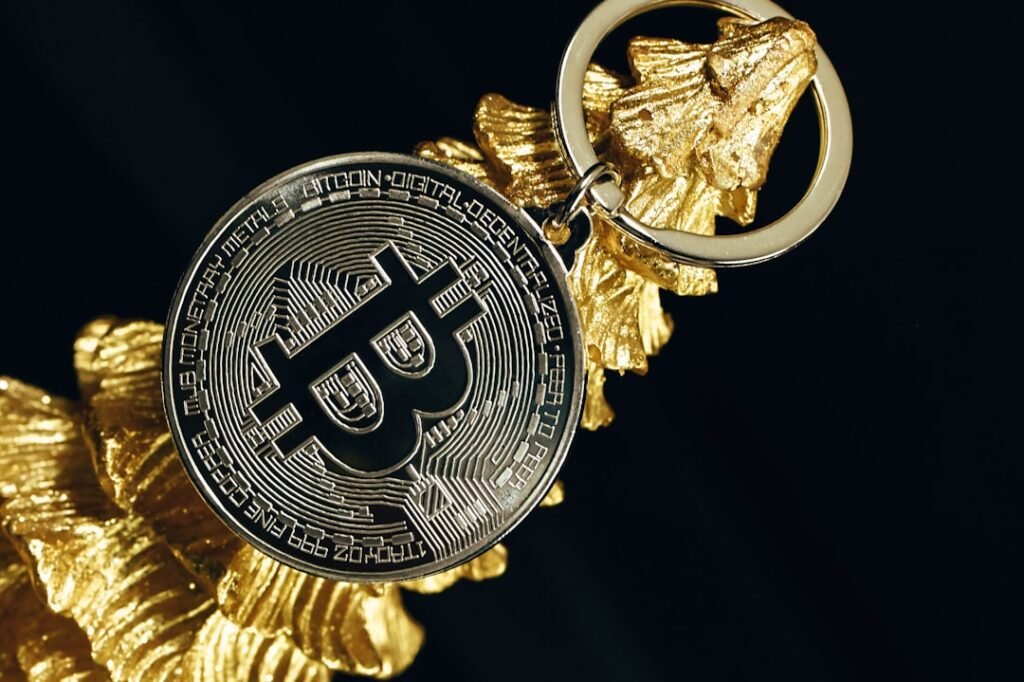The Crypto Compliance Crackdown: How AML & KYC Are Reshaping the Digital Asset Landscape
Cryptocurrency promised a revolution: decentralized finance, borderless transactions, and unprecedented freedom. Yet, this very potential has attracted illicit actors, turning the digital frontier into a battleground against financial crime. The rise of crypto has thrust Anti-Money Laundering (AML) そして Know Your Customer (KYC) from the shadows of traditional finance into the glaring spotlight of the digital asset world. As regulators scramble and platforms adapt, understanding these frameworks isn't just for compliance officers – it's essential knowledge for every crypto participant.
The AML Imperative: Combating Crime in the Crypto Wild West
Anti-Money Laundering (AML) encompasses the laws, regulations, and procedures designed to prevent criminals from disguising illegally obtained funds as legitimate income. Within the cryptocurrency sphere, AML aims to curb the misuse of digital assets for money laundering, terrorism financing, fraud, and other illicit activities.
The classic money laundering cycle – placement (introducing dirty money into the system), layering (obscuring its origin through complex transactions), and integration (returning it as "clean" funds) – finds fertile ground in crypto's pseudonymous nature. Key features that inadvertently facilitate illicit flows include:
- Pseudonymity: While blockchain transactions are public, linking wallet addresses to real-world identities isn't always straightforward.
- Borderless Speed: Enables near-instantaneous, low-cost transfers across jurisdictions, often bypassing traditional banking oversight.
- Irreversibility: Once confirmed, transactions cannot be reversed, complicating asset recovery.
- 流動性: Crypto can be rapidly converted into other assets or fiat currency through exchanges.
Criminals exploit these features by converting illicit funds into crypto, moving them through multiple wallets or exchanges (a process called "chain-hopping"), and finally converting them back, potentially leveraging privacy coins or mixing services. The staggering $1.5 billion Ether (ETH) heist from Bybit in February 2025, subsequently laundered at breakneck speed, tragically exemplifies the scale of the challenge.
KYC: The Cornerstone of Crypto Trust
Know Your Customer (KYC) is not synonymous with AML; it's a critical subset. KYC focuses squarely on customer identity verification, forming the bedrock upon which effective AML programs are built. It involves Customer Due Diligence (CDD), which includes:
- Collecting and Verifying Personal/Business Information: Confirming identities using official documents and cross-referencing against global watchlists and sanctions.
- Risk Profiling: Assessing the potential risk a customer poses for illicit activity.
- Enhanced Due Diligence (EDD): Applying stricter scrutiny for higher-risk customers, such as Politically Exposed Persons (PEPs), involving deeper background checks and ongoing monitoring.
- Ongoing Monitoring: Continuously scrutinizing customer activity for signs of suspicious behavior.
For crypto platforms, robust KYC isn't optional; it's a fundamental requirement for regulatory legitimacy and building user trust. It shifts the paradigm from pseudonymity towards verified identity.
The Travel Rule: Stripping Away Crypto's Anonymity Veil
Perhaps the most significant and challenging AML regulation impacting crypto is the トラベル・ルール. Mandated globally by the Financial Action Task Force (FATF) under Recommendation 16, it fundamentally alters how large crypto transfers occur.
Think of it as a mandatory digital passport check:
- When a user initiates a crypto transfer exceeding a specific threshold (e.g., $3,000 in the US, €1,000 in the EU under the upcoming Recast TFR, £1,000 in the UK, CA$1,000 in Canada, AU$1,000 in Australia, ¥ equivalent in Japan, SG$1,500 in Singapore, etc.),
- について sending Virtual Asset Service Provider (VASP) – like an exchange or wallet provider – must collect and share specific customer information (originator details) with the receiving VASP.
- The receiving VASP must collect and verify beneficiary details.
Information typically required includes:
- Originator's name
- Originator's account number/unique transaction identifier (e.g., wallet address)
- Originator's physical address, national ID number, or date and place of birth
- Beneficiary's name
- Beneficiary's account number/unique transaction identifier (e.g., wallet address)
Introduced by FATF in 2019, the Travel Rule directly tackles money laundering by linking anonymous blockchain transactions to real people. It makes it significantly harder for criminals to shuffle funds between exchanges unnoticed. However, its implementation presents substantial technical hurdles, sparks intense privacy debates, and, as of March 2025, compliance remains uneven globally. The EU's Recast Transfer of Funds Regulation (TFR), set for full enforcement by July 10, 2027, aims to standardize and strengthen Travel Rule application across the bloc, closing gaps left by the earlier 5AMLD.
Global AML/KYC Regulations: A Patchwork Quilt (With Teeth)
Crypto regulations are evolving rapidly, often building upon FATF's recommendations. Compliance requirements vary significantly by jurisdiction, creating a complex landscape for global platforms. Here's a snapshot of key regions:
| 管轄 | Key Regulatory Bodies | Core Regulations | Key Requirements | Travel Rule Threshold |
|---|---|---|---|---|
| United States | FinCEN, CFTC, SEC | Bank Secrecy Act (BSA), FinCEN Guidance | KYC, Transaction Monitoring, SAR Filing | $3,000 |
| 欧州連合 | AMLA, EBA, ESMA | 5AMLD, 6AMLD (effective 2024), AMLR (effective 2027) | KYC, Transaction Reporting | €1,000 (Standardized under Recast TFR by July 2027) |
| United Kingdom | FCA, HMT | Money Laundering Regulations | KYC, SAR Filing | £1,000 |
| Canada | FINTRAC, CSA | PCMLTFA | KYC, Transaction Reporting | CA$1,000 |
| Australia | AUSTRAC | AML/CTF Act | KYC, Transaction Monitoring | AU$1,000 |
| Japan | FSA | Payment Services Act | KYC, Transaction Reporting | Aligned with International Standards |
| シンガポール | MAS | Payment Services Act (PSA) | KYC, Transaction Monitoring | SG$1,500 |
| スイス | フィンマー | Anti-Money Laundering Act (AMLA) | KYC, SAR Filing | Per FATF Recommendations |
| 香港 | HKMA | AMLO | KYC, Transaction Monitoring | HK$8,000 |
| South Korea | FSC | Specific Financial Transaction Information Act | KYC, Transaction Reporting | ₩1,000,000 |
Key takeaways from the global landscape:
- Registration/Licensing: Crypto businesses (VASPs) must typically register with or be licensed by the national financial regulator.
- Mandatory KYC: Identity verification is universally required before allowing transactions or account opening.
- Transaction Monitoring & SARs: Continuous monitoring for suspicious activity and mandatory reporting to Financial Intelligence Units (FIUs) like FinCEN (US), FIU (EU states), AUSTRAC (AU) is standard.
- Travel Rule Adoption: Most major jurisdictions have implemented or are actively implementing the FATF Travel Rule, albeit with varying thresholds. Harmonization, like the EU's TFR, is a trend.
- Enforcement is Real: Non-compliance carries severe consequences, including hefty fines (e.g., the SEC's $2.35 billion in penalties in 2021), loss of licensing, and criminal prosecution. The EU's 6AMLD significantly increased penalties.
How AML/KYC Directly Impacts You: The Crypto User Experience
These regulations aren't abstract concepts; they tangibly shape how you interact with the crypto ecosystem:
- The KYC Onboarding Hurdle: Forget anonymous trading on major exchanges. Expect to provide government-issued ID, proof of address, and sometimes even a selfie. This process adds friction but is mandatory for accessing regulated platforms.
- Transaction Scrutiny: Platforms continuously monitor activity. Large transfers, unusual transaction patterns (e.g., rapid movement between multiple wallets/exchanges), or transactions involving high-risk jurisdictions may be flagged. This can lead to delays, requests for additional information, or even blocked transactions.
- The Travel Rule Friction: Sending crypto above the threshold? Be prepared for the platform to collect and share your personal details with the recipient's service provider. This clashes with crypto's initial privacy promise but is now a compliance reality for cross-border and large transfers.
- Tax Reporting: Platforms increasingly issue tax forms (like the US フォーム1099-DA) for user activity, driven by regulatory pressure. Non-domiciled users with US ties face particular scrutiny from the IRS.
- Cost Implications: Implementing sophisticated AML/KYC and Travel Rule solutions is expensive for platforms. These costs are often indirectly passed on to users through fees.
- The DeFi Dilemma: The friction of regulated platforms pushes some towards decentralized finance (DeFi) protocols, which currently operate with less KYC/AML. However, regulators globally are actively exploring how to bring DeFi within the compliance net.
Beyond Compliance: The Tangible Benefits of AML/KYC
While often viewed as a burden, effective AML/KYC frameworks offer crucial benefits for the entire crypto ecosystem:
- セキュリティの強化: Protects platforms and users from fraud, hacks, and scams by verifying identities and monitoring for malicious activity.
- Increased Legitimacy & Trust: Demonstrates to regulators, institutional investors, and the wider public that the crypto industry is serious about combating financial crime.
- Market Stability: Reducing illicit flows contributes to a healthier, more stable market less susceptible to manipulation and criminal exploitation.
- Protection for Legitimate Users: Helps prevent legitimate users' accounts from being compromised or used unwittingly in money laundering schemes.
- Sustainable Growth: Building a compliant foundation is essential for crypto's long-term integration into the global financial system and widespread adoption.
The Inevitable Path Forward
The days of the completely unregulated crypto "Wild West" are rapidly receding. Incidents like the Bybit hack and the Lazarus Group's sophisticated laundering operations starkly highlight the vulnerabilities and the critical need for robust AML/KYC defenses. The global regulatory momentum is undeniable and accelerating.
For crypto platforms, compliance is no longer optional – it's an existential imperative demanding significant investment in technology (identity verification, transaction monitoring, Travel Rule solutions) and expertise. For users, understanding these rules is crucial for navigating the landscape smoothly and securely. While tensions between privacy ideals and regulatory requirements will persist, the evolution towards a more transparent, accountable, and ultimately trustworthy cryptocurrency ecosystem is well underway. AML and KYC are not just regulatory hurdles; they are the essential guardrails guiding crypto towards mainstream acceptance and long-term viability.












